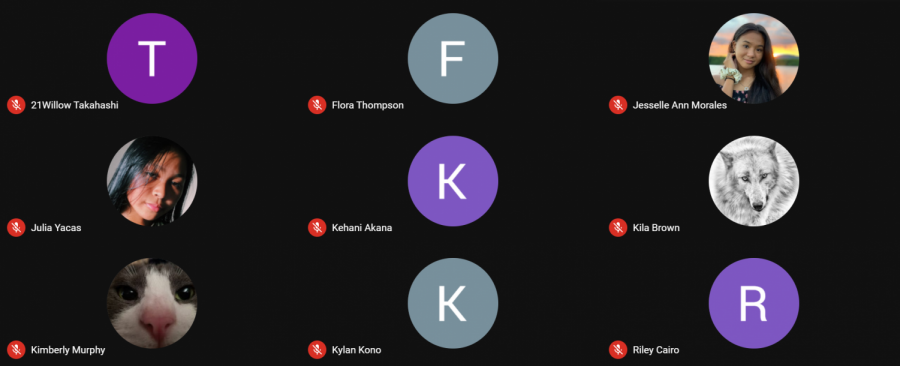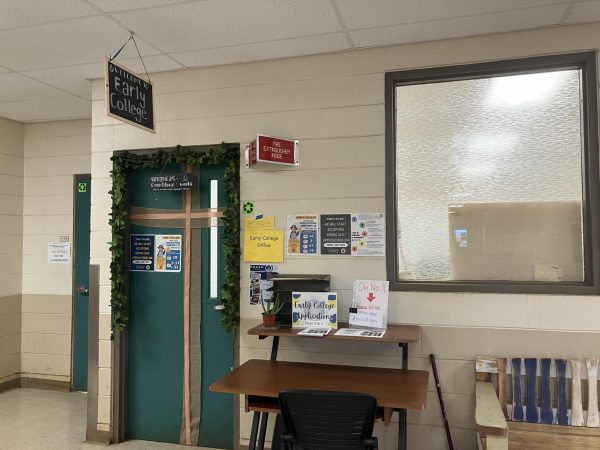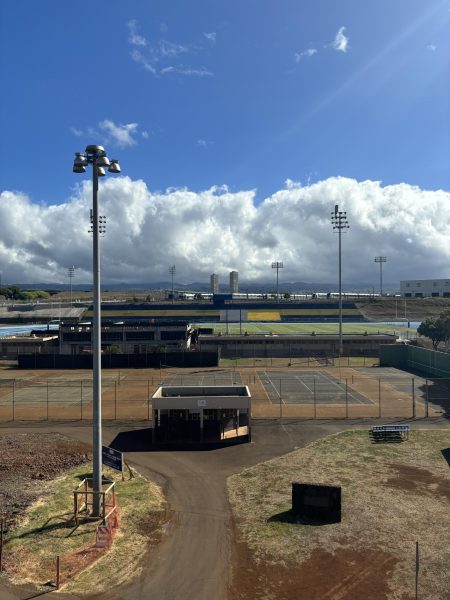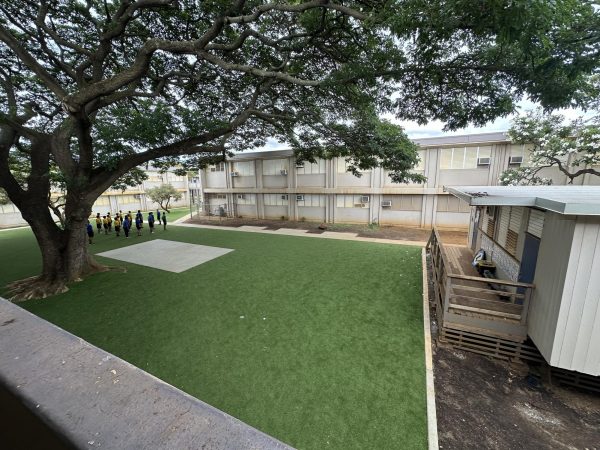Teachers and students share thoughts on virtual policies
Photo courtesy of Katrina Karl
Whether students choose to follow the “cameras on” policy or not, teachers have a limited view of what students are actually doing during their classes.
As distance learning continues, so do the struggles of running classes entirely online. While teachers make efforts to provide students with the best learning experience possible, many challenges still exist. One such challenge is keeping students accountable during instructional time.
Drawing and Painting teacher Brian Hartsfield enforces Waipahu High School’s “cameras on” policy to encourage his students to stay on task. “I’m not able to walk around and bust them for being on their cell phone and not getting work done,” he says. “But hopefully by holding them accountable they’ll at least get some of it done.” He also points out that even with the cameras on, teachers still have a very limited view of what students are actually doing. Students could be playing video games or watching videos on their phones while making it look like they’re doing work. This only adds to the frustrations of teaching online.
Tenth grader Nerissa Roxas said most of her teachers, like Hartsfield, enforce this policy. When asked how she feels about the rule, she said, “I wouldn’t say I like it, but I’d say it’s reasonable.” Roxas adds, “My mom is a teacher and I sometimes hear stories of her experiences in her online classes, so I can empathize with the teachers and why they make these policies.”
However, some students have seen their teachers becoming less strict with this policy. Twelfth grader Ashley Valois says, “I think they understand that life has gotten more stressful so they’re being more lenient.” Like many seniors at WHS, Valois has been balancing college and scholarship applications with regular school work. She says this has caused a strain on her and is appreciative of her teachers consideration during this time.
English teacher Cesceli Nakamura says that while she expects cameras to remain on during instruction, she acknowledges the unique circumstances of learning from home. “I think during this time I’ve had to be understanding of different situations of families.” Nakamura also said she has made adjustments to certain policies this year. “I’ve flexed the ‘No Late Homework’ policy for classes because I realized that many students had to get jobs to support their families and took on duties of caring for siblings who were also home during the day. I had to change my mindset out of empathy for the students and families. If the students were a little late in submitting their assignments, I would still give them credit instead of not accepting it. They worked hard to meet the assignment expectations.”
Even with improvements and compromises, both teachers and students express their desire to return back to school. Hartsfield comments on how he’s not able to connect as well with his students through a screen. Valois said she misses spending time with her friends and participating in student council activities. They hope for some in-person learning before the school year comes to an end.
Willow Takahashi is a 12th grader in the Academy of Arts & Communication.






